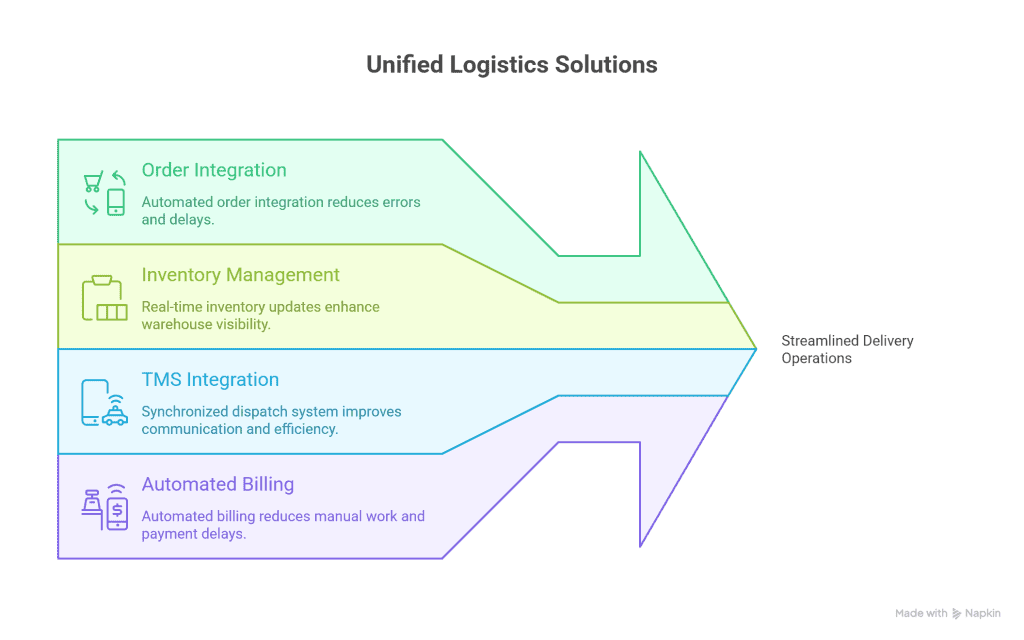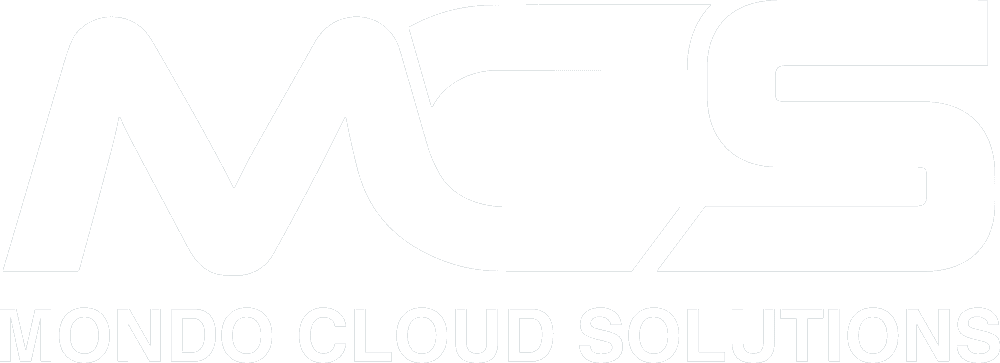TrackOps by Mondo Cloud Solutions is revolutionizing how last mile carriers manage their delivery operations. From the moment an order is received until cash is collected, TrackOps delivers end-to-end automation that increases efficiency, reduces delays, and enhances visibility.
What Is MCS TrackOps?
MCS TrackOps is a powerful, white-labeled last mile logistics platform built for carriers that need flexibility and automation. It integrates seamlessly with multiple Transportation Management Systems (TMS), retailer systems, and third-party platforms via EDI, XML, API, and even PDF parsing.
It’s not a TMS—it’s the glue between the systems you already use and the systems your partners demand. TrackOps empowers you to run your delivery business your way, while staying connected to retailers and clients.
Why Last Mile Matters More Than Ever
In a world driven by fast shipping and customer expectations, last mile delivery has become a mission-critical part of the supply chain. Yet, many last mile carriers still rely on manual processes that lead to:
– Delivery delays
– Missed pickups
– Billing disputes
– Retailer dissatisfaction
– Lost revenue
This guide outlines a proven roadmap to streamline last mile operations, reduce friction, and scale your logistics business using modern tools like TrackOps by Mondo Cloud Solutions.

4 Steps to Streamline Last Mile Delivery with TrackOps
1. Order Intake & Retailer Integration
Many last mile carriers still rely on manual entry of delivery orders via email, PDF, or Excel sheets, leading to errors and delays.
TrackOps makes it easy to receive delivery orders automatically via:
- EDI204
- XML / API
- CSV / Excel / PDF parsing
It eliminates manual data entry and ensures orders from retailers like Home Depot or Lowe’s are integrated in real-time. With error-free imports and automated sync, you’re ready to deliver without delays.
How it helps:
– Orders flow directly into your system in real-time
– Reduces human error significantly
– Allows faster planning and pre-dispatch staging
– Forms the backbone of automation for downstream operations
Result: Orders are received faster, cleaner, and more reliably—ensuring dispatch teams work with accurate data from the start.
2. Real-Time Inventory & SKU Management
Warehouses often lack visibility into product readiness, leading to missed deliveries, poor put-away logic, and late updates to retailers.
Once orders are systematically imported, TrackOps enables detailed SKU-level tracking using scanners and intelligent logging. The system tracks the serial numbers, their location in the warehouse, when they arrived, and more. TrackOps enables precise inventory tracking using:
- Real-time serial number assignment and scanning
- Warehouse mapping for each product
- Auto-notifications for backorders or delayed line hauls
- Auto-rescheduling of delivery if not actioned within 24 hours
TrackOps updates stakeholders instantly and even lets warehouse staff locate products with ease.
Result: Your warehouse staff gains full visibility into inbound products and can take immediate action, reducing bottlenecks and improving communication with dispatch and customer service.
3. TMS Integration & Dispatch Orchestration
Dispatching often runs on separate systems such as DispatchTrack or OnTime360, If retailers are not directly integrated with those systems then this is leading to lack of visibility between systems, duplicate entries, and inconsistent customer communication.
TrackOps integrates with top TMS platforms such as DispatchTrack, OnTime360, and Descartes. This ensures the system can push and pull delivery status, route plans, driver availability, and exceptions. This type of integration fills the gap when retailers demand specific updates and requirements such as delivery status updates, GPS coordinates, Proof of Deliveries, pictures and surveys .
How TrackOps TMS integration tool helps
- Real-time synchronization with TMS platforms
- Warehouse personnel get accurate manifest info linked to scanned inventory in excel or PDF. This works as a pick list and staging report at the same time, from which staff knows where to pick items from the warehouse and where to stage the load.
- Seamless delivery routing
- Real-time delivery status updates sent to retailers system.
Whether you have your own TMS or use a third-party one, TrackOps adapts to your workflow.
4. Billing Automation, Cash Application & Dispute Management
Manual billing is time-consuming, error-prone, and delays payments. Many carriers struggle with reconciling payments and resolving disputes especially with high volume retailers.
TrackOps provides a robust billing engine that automates invoice creation based on delivery statuses, zone-based pricing, dynamic FSC calculations, and more. Cash application logic intelligently matches incoming payments with invoices and flags any disputes.
Say goodbye to manual invoicing. TrackOps automates:
- Invoice generation based on rates, truck types, and zones
- Fuel Surcharge (FSC) calculation based on live fuel data
- Cash Application to match payments to invoices
- Full dispute resolution tracking for chargebacks
Your finance team can now handle complex billing scenarios in minutes, not days.
Why Choose MCS for Last Mile Operations?
- Full control of your clients
- White-labeled customer portal for branded experience
- Open API Documentation
- Agnostic system: works with any retailer or TMS
- Built by last mile experts who understand your challenges
- Modular pricing: only pay for what you need
- Continuous IT Consultancy and Support
- Last Mile professional website development
- Last Mile Digital Marketing
Final Thoughts
Manual processes and disconnected systems can cripple your logistics operation. With TrackOps, you gain visibility, automation, and control—while offering your clients a world-class experience.
Ready to modernize your last mile operation? Let’s talk.

